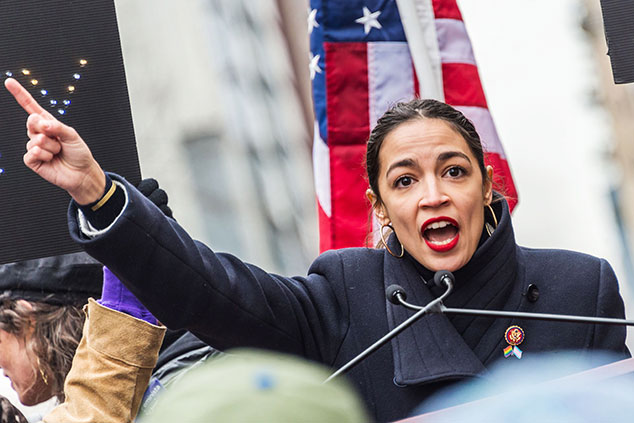
The “great annual jamboree of the globalists in Davos… felt out of tune with the times”, said The Daily Telegraph. “No more heroes for a global elite,” said the Financial Times.
Look at the bits and bobs from the conference that filtered down to the rest of us and you will feel it too. A clip of a Danish historian complaining about how, amid all the mutterings about social justice, no one is talking about the super-rich paying their taxes (“I feel like I am at a firefighters’ conference and no one is allowed to talk about water”) went viral fast, and the most discussed non-participant was probably New York congresswoman Alexandria Ocasio-Cortez, a rising star in the Democratic party thanks to her idea that imposing a 70% rate of income tax on the very rich would be a fine idea.
Ocasio-Cortez would (quite rightly) have been laughed off the mountain a decade ago. No more. It’s now being discussed earnestly across the US as a perfectly viable policy option. So bad has it got for billionaires in the last few months that the very word is no longer the badge of pride it once was. Pity poor Howard Schultz, ex-Starbucks boss, billionaire and US presidential hopeful (for now). He doesn’t want to be a billionaire any more. In a television interview this week he asked to be referred to as a “person of means” instead.
What, you might wonder, is wrong with billionaires? Regular MoneyWeek readers will know that part of what’s wrong with a lot of them is the fact that (with many honourable entrepreneurial exceptions) they often exist as a result of mismanaged monetary policy (free money can do a lot if you use it right); badly thought-out regulation; politically unacceptable rent-seeking; corruption; asset bubbles; a failure of anti-trust rules; or some miserable mixture of the lot (see our cover story for how this can affect the economies of emerging markets – and of course which economies are most insulated from it).
But the other part, says this week’s interviewee Anand Giridharadas, is their endless patronising self-righteous do-goodery and tendency to “richsplain” (my new favourite word) problems to us, combined with their failure to actually accept any possibility of the kind of structural change that might involve any inconvenience for them.
Take Amazon’s chief executive Jeff Bezos. We do not need him to help a small number of homeless people out, says Giridharadas. We need him to stop putting small bookshops out of business and to pay Amazon staff properly – whatever the long-term impact on his own power might be. So if you are one of MoneyWeek’s billionaire, or even millionaire, readers, should you be worried? Possibly.
The political and tax tides are turning fast. There could be uncomfortable times ahead for the people who have what other people consider to be too many means.